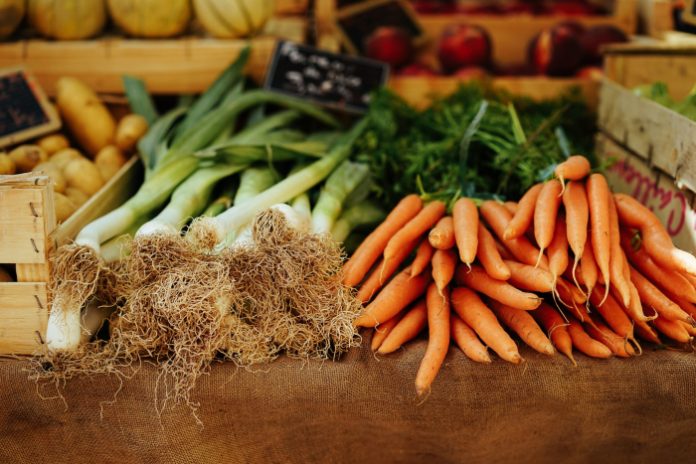
The Global Food Safety Initiative (GFSI) defines food safety culture as ‘shared values, beliefs and norms that affect mindset and behavior toward food safety, in, across and throughout an organization.’ The topic is of global importance as a poor food safety culture can lead to illness and even death. Food culture maturity, on the other hand, helps to minimize risks and ensures safe food is produced for consumers.
All these and other issues on the safety of food supply chains in the global market were discussed in a webinar on BRCGS Food Safety Issue 9.
It’s crucial for companies involved in the global food supply chain to practice a positive food culture. Emma Hosking, global product manager, SGS said “The SGS Realize food safety culture program provides your business with a detailed online assessment, developed by technical food experts and occupational psychologists to measure your food safety culture. This helps you gain an insight into employee behavior outside of food safety audit days, providing actionable intelligence that can be used to continuously improve your company’s food safety culture.”
AOECS audit program
The new AOECS Gluten-Free Addendum Audit Program can be delivered alongside any GFSI-benchmarked food safety standard. SGS has partnered with the Association of European Coeliac Societies (AOECS) to offer food manufacturers and retailers a new route to acquiring gluten-free foods certification.
“This means that if you are certified to any GFSI-benchmarked food safety standard, you can enjoy the benefits of the Addendum Program without having to go through the process of a stand-alone AOECS audit,” Hosking adds.
Jeremy Chamberlain, global food certification director, SGS, said, “AOECS owns and operates a gluten-free certification program recognized internationally by its crossed grain symbol. Brand owners are able to use this symbol in their pre-packaged food products if they source from manufacturers that meet the AOECS standard for gluten-free foods, and if they meet the crossed grain symbol’s licensing rules. All food products bearing the crossed grain symbol must comply with all AOECS standard requirements.”
V-Label certification
V-Label is a product certification that follows standardized criteria to ensure companies promote transparency and clarity to consumers buying vegan and vegetarian products. All food and wine products that wish to bear the V-Label mark, need to comply with all V-Label scheme requirements, Chamberlain continues. “The unintended presence of non-vegan or non-vegetarian substances should be maintained below 0.1% (1g/kg) in the final product. For that reason, all stages of production, processing, and distribution should be designed in a way to prevent the unintended presence of non-vegan or non-vegetarian substances.”
The V-Label certification process involves a raw material and process risk assessment conducted by V-Label, and an onsite audit conducted by qualified SGS auditors. Audits against the V-Label requirements can either be delivered as standalone or as an addendum to GFSI-recognized standards or other recognized food safety schemes.
IndiFoodBev — authentic, impactful and influential
An English-language food and beverage processing and packaging industry B2B platform in print and web, IndiFoodBev is in its third year of publication. It is said that the Indian food and beverage industries represent approximately US$ 900 billion in revenues which implies more than 20% of the country’s GDP. Eliminating the wastage on the farmside can help to deliver more protein to a higher number of the population apart from generating sizable exports. The savings in soil, seeds, water, fertilizer, energy and ultimately food and nutrition could be the most immense contribution that country is poised to make to the moderation of climate change.
To improve your marketing and grow sales to the food and beverage processing and packaging industry, talk to us. Our research and consulting company IppStar [www.ippstar.org] can assess your potential and addressable markets in light of the competition. We can discuss marketing, communication, and sales strategies for market entry and growth.
Suppliers and service providers with a strategy and budget for targeted marketing can discuss using our hybrid print, web, video, and social media channels to create brand recognition linked to market relevance. Our technical writers are ready to meet you and your customers for content.
The second largest producer of fruit and vegetables in the world is continuously expanding processing capacities and delivery systems with appropriate innovative technologies. We cover product and consumer trends, nutrition, processing, research, equipment and packaging from farm to thali. Get our 2025 media kit and recalibrate your role in this dynamic market. Enhance your visibility and relevance to existing markets and turn potential customers into conversations. Ask for a sample copy of our bi-monthly in print or our weekly IndiFoodBev eZine each Wednesday.
For editorial info@ippgroup.in — for advertisement ads1@ippgroup.in and for subscriptions subscription@ippgroup.in
Naresh Khanna – 10 February 2025
Subscribe Now










